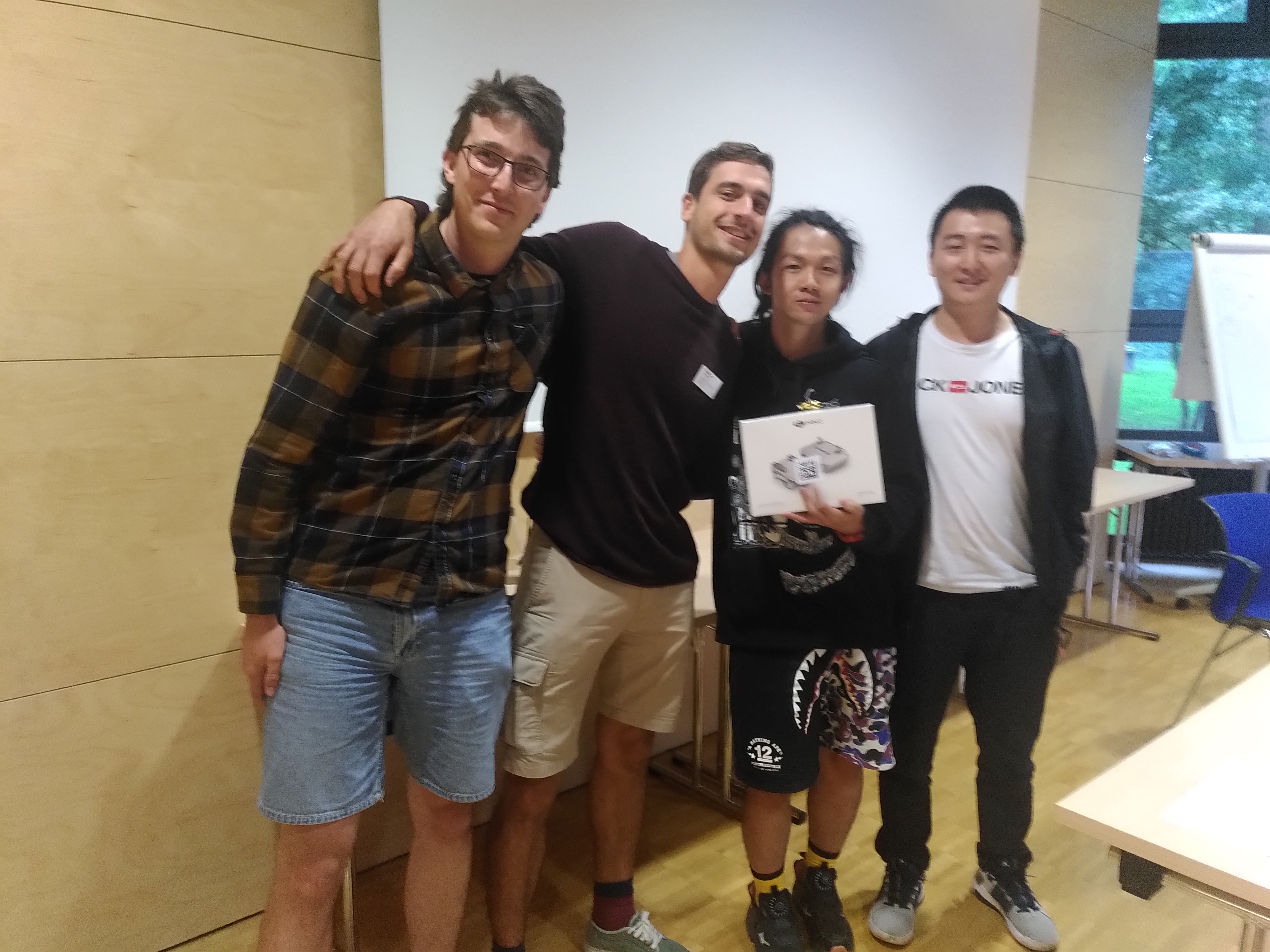Summer School 2022
Application of Machine Learning in Plant Sciences
12–16 September 2022, Einsiedeln, Switzerland
PSC Summerschool Full program 2022 (PDF, 6 MB)
Technological developments have advanced measurements on plants, leading to routine production of large and complex datasets. This has led to increased efforts to extract meaning from these measurements and to integrate various datasets. At the same time, machine learning has rapidly evolved and is now widely applied in science in general and in plant sciences.
Machine Learning (ML) is a type of artificial intelligence (AI) that allows software applications to become more accurate at predicting outcomes without being explicitly programmed to do so. Nowadays, machine learning algorithms are successfully employed for classification, regression, clustering, or dimensionality reduction tasks of large sets of especially high-dimensional input data. One subset of ML algorithms, deep learning has revolutionized image recognition.
The Summer School aims to facilitate the understanding of the concept of machine learning, to get insights in what it can do and what it can be used for demonstrated by best practice examples.
Participants will also learn, how similarly and differently they are used in different disciplines, for instance in soil science, ecology, biodiversity, agriculture, plant breading and plant pathology.
The program of the Summer school study week will include sessions on the fundamentals of ML, applications of deep learning, ML in plant breeding, ML in ecology and soil sciences and ML in agriculture.
Theoretical inputs to understand the concepts and methodologies, hands-on programming session, exemplary insights in good practices and working on a hackathon educational challenge will help the participants to understand and apply machine learning in various areas of plant sciences.
Invited national and international speakers will make presentations on the topic of their research, give insight into their research field and conduct interactive programming sessions. The founder of AICrowd will act as mentor in the hackathon challenge.
Speakers
- Christian Ahren, Agroscope
- Carol Alexandru, University of Zurich
- Jan Dirk, ETH Zurich
- Manuel Günther, University of Zurich
- Gert Kootstra, Wageningen University
- Madlene Nussbaum, University of Bern
- Sharada P. Mohanty, AI Crowd
- Andrea Paz, ETH Zurich
- Luca Pegoraro, WSL
- Fernando Perez Cruz, ETH Zurich & SDSC
- Michael Rzanny Max Planck Inst. of Biogeochemistry
- Thales Sehn Körting, Nat. Inst. f Space Research, Brasil
- Kentaru Shimizu, University of Zurich
- Shinhan Shiu, Michigan State University, USA
- Benjamin Stocker, ETH Zurich
- Aalt-Jan van Dijk, Wageningen University
- Hai Wang, China Agricultural University, China
- Niklaus Zimmermann, WSL
Learning Objectives
By the end of the summer school, participants will:
- Understand the fundamentals of machine learning and its application in plant science research.
- Understand the basics of deep learning and several applications of it various fields including plant phenotyping, plant identification, detecting plant disease or deforestration from images.
- Know how machine learning is applied in plant breeding, macro-ecology and soil science.
- Hear about agricultural robotics and how drones are applied in smart farming.
- Be able to explore and run machine learning code with R and/or phyton.
- Can implement various machine learning methods in their research.
- Know what a hackathon challenge is and practice their skills with a real-life problem.
Organization of Student Work
Before Summer School
- Application for the summer school should include description of motivation, background (including experience in programming (no. of years, type of language)) and description of own research project.
- Preparatory reading: Students will need to read the assigned literature.
- Preparatory computer set-up: Students will need to install R and phyton.
- All participants are expected to present a poster of their research at the beginning of the summer school.
During Summer School
- Sessions are composed as lectures, related hands-on programming sessions and case-study examples.
- Team work will be done on a hackathon challenge, individual working time on this is expected to be about 10 h.
- Hackaton presentation on day 5 is 5-10 min per team.
Eligibility
First priority will be given to students enrolled in one of the following PSC PhD pro- grams: PhD Program Plant Sciences or the PhD Program Science and Policy.
Other MSc students, PhD students and Postdocs at University of Zurich, ETH Zurich or University of Basel as well as students from other national or international universi- ties are welcome if places are available.
Participants must have a basic knowledge of the programming language R. Addi- tionally, programming knowledge of phyton is an advantage.
Hackathon award

Congratulation to the hackathon winner team: Hongyuon Zhang from the Estonian University of Life Sciences, Damian Käch, Yutang Chen and Fabio Turco from ETH Zurich.
The challenge of the Hackathon was to correctly identify a disease class from low-resolution images of plant leaves.
A drone was awarded to the best team solution, based on creativity, implementation of the idea, and clarity of the presentation of the solution.
Learn more about the challenge:
Fee
PhD students of the PhD Program Plant Sciences, PhD Program Science and Policy and the Life Science Zurich Graduate School (LSZGS): no fee.
All other participants (incl. national and international Master students, PhD students and Postdocs): CHF 300.
The fee covers board, lodging and activities during the summer school study week.
Travel expenses are not included.
Students are expected to arrive at the venue on Monday morning, 12 Sept 2022.
For cancellation less than four weeks before the summer school a late cancellation fee of CHF 150 applies.
Credits
2 ECTS
Organizer
This summer school is organized by the Zurich-Basel Plant Science Center.
Funding
This summer school receives funding from the swissuniversities innovation program under the P-8 “Stärkung von Digital Skills in der Lehre” grant.